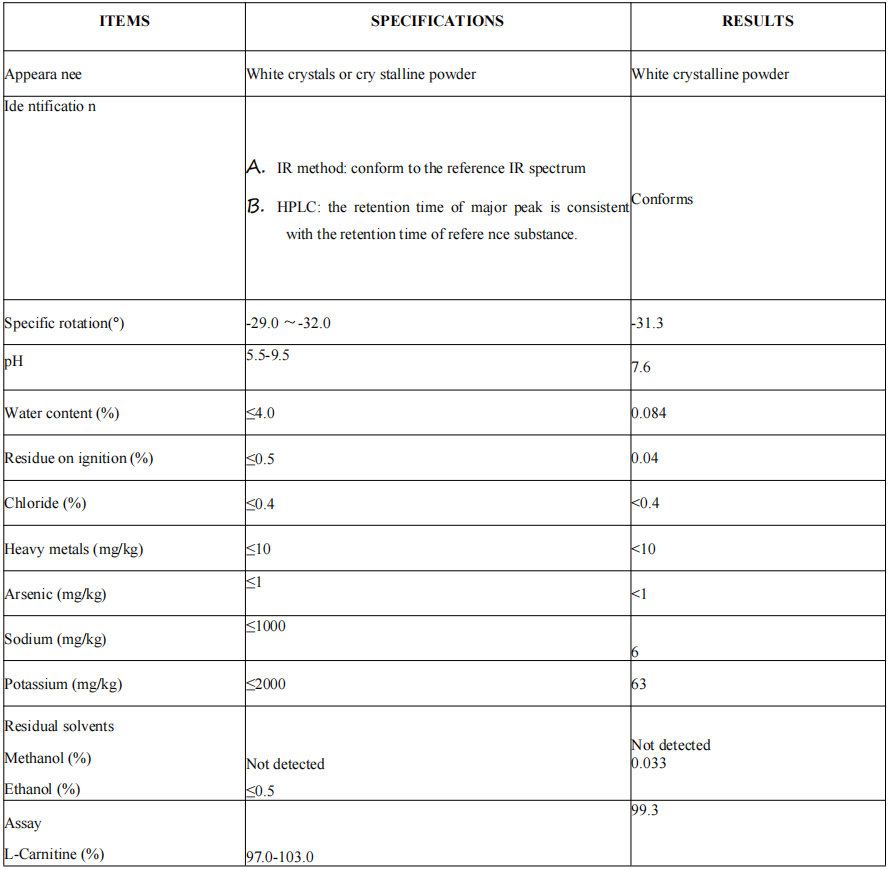Introduction: Welcome to the world of L-Carnitine(CAS No.541-15-1), a remarkable amino acid derivative that plays a crucial role in energy metabolism and fitness support. L-Carnitine is a naturally occurring compound synthesized in the body, and it is also available as a dietary supplement. This versatile nutrient offers a range of benefits, from enhancing athletic performance to promoting overall well-being. Let's delve into the wonders of L-Carnitine and its impact on your health and fitness journey.
The Power of L-Carnitine: L-Carnitine is a vital player in the body's energy production process. It facilitates the transport of fatty acids into the mitochondria, the energy powerhouses of cells, where they are converted into usable energy. This mechanism is particularly beneficial during periods of increased physical activity or when the body requires an extra boost of energy. Additionally, L-Carnitine has antioxidant properties, helping to protect cells from oxidative stress and supporting overall cellular health.
Benefits of L-Carnitine:
1:Enhanced Athletic Performance: L-Carnitine has gained popularity among athletes and fitness enthusiasts due to its potential to improve exercise performance. By promoting the utilization of fats for energy, L-Carnitine can help delay the onset of fatigue and enhance endurance during workouts.
2:Fat Metabolism Support: L-Carnitine plays a key role in the breakdown of fats for energy. As a result, it may aid individuals seeking to manage body weight and body composition.
3:Heart Health: L-Carnitine has been studied for its potential cardiovascular benefits. It may support heart health by improving blood flow, reducing oxidative stress, and enhancing energy production in heart muscle cells.
4:Muscle Recovery: Due to its role in energy production and antioxidant properties, L-Carnitine may assist in post-exercise muscle recovery, reducing muscle soreness and supporting tissue repair.
5:Brain Function: Emerging research suggests that L-Carnitine may have positive effects on cognitive function and memory, although further studies are needed to fully understand these potential benefits.

|





 Pharma Sources Insight January 2025
Pharma Sources Insight January 2025


